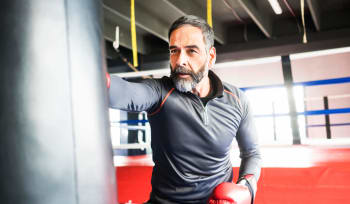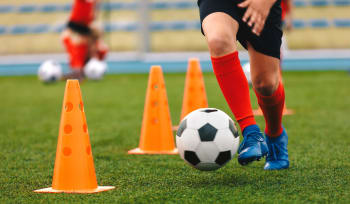This article provides a brief overview on CPD courses for sports coaches. As the sports industry continues to grow, the need for CPD becomes increasingly important in order to maintain standards and improve both knowledge and skills within the sector. CPD stands for Continuing Professional Development, and is the term used to describe the training and learning a sports professional undertakes to improve their workplace capabilities.
CPD in the Sports Industry
There are many professional bodies in the sports industry that recognise the importance of CPD. For example The Chartered Institute for the Management of Sport and Physical Activity (CIMSPA) encourages the use of Continuing Professional Development for all its members. In addition, the Sports Therapy Organisation requires members to complete CPD hours every year as part of membership, which can be split between a mix of formal learning and individual study. Also, all Members of The Society of Sports Therapists are required to undertake annual Continuing Professional Development (CPD) as part of membership.
CPD for Sports Coaches
CPD plays an important role in the professional development of sports coaches. CPD enables learning to become a proactive and structured approach to knowledge and skills improvement, rather than simply reactive. Engaging in Continuing Professional Development ensures that a sports coaches academic and practical qualifications do not become out of date, and allows a sports coach to continually upskill regardless of their current experience or level.
Different Types of CPD for Sports Coaches
CPD for sports coaches can combine a range of different learning types, from formal training courses, to online & eLearning, sports workshops, and educational conferences and events. All types of CPD are designed for a sports coach to improve and have effective professional development. Continuing Professional Development is typically split into 3 different types of CPD, which are:
- Structured CPD - Structured CPD is typically active learning and can involves attending training courses, workshops, seminars, conferences, e-learning course or CPD certified events.
- Reflective CPD - Reflective learning is often much more passive than structured CPD, examples of this include watching sports coaches training videos, reading sports educational guides, podcasts and any coaching case studies or industry updates.
- Self-directed CPD – Similar to reflective learning, self-directed CPD involves all unaccompanied learning, such as reading articles and publications; either in print or online, as well as sports coaching books by leading experts for example.
It is generally recommend that all professionals keep a record and log of the CPD learning activities undertaken throughout the course of their career. The free myCPD Portal record tool can make it easier to manage any ongoing CPD requirements effectively, set annual CPD targets, store CPD certificates of attendance, and track learning progress in one simple place.














